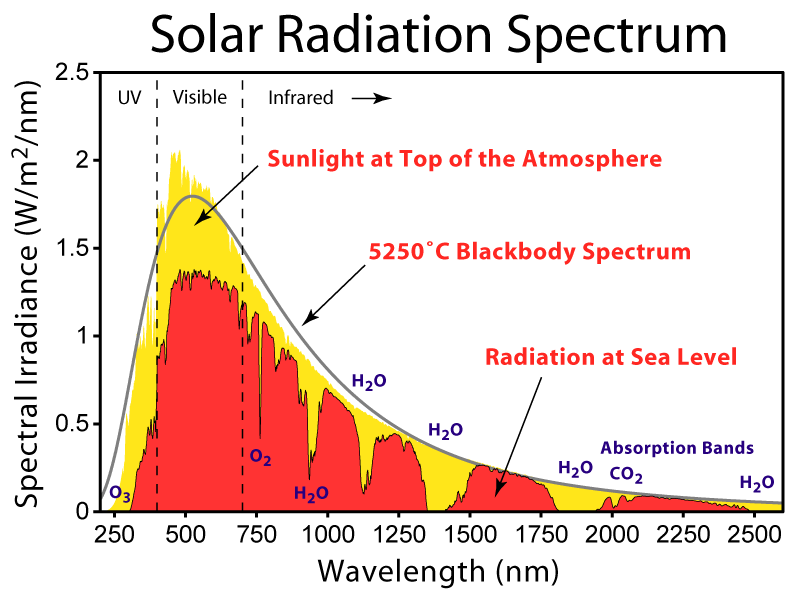I know plants are green due to chlorophyll.
Surely it would be more beneficial for plants to be red than green as by being green they reflect green light and do not absorb it even though green light has more energy than red light.
Is there no alternative to chlorophyll? Or is it something else?
Answer
Surely it would be even more beneficial for plants to be black instead of red or green, from an energy absorption point of view. And Solar cells are indeed pretty dark.
But, as Rory indicated, higher energy photons will only produce heat. This is because the chemical reactions powered by photosynthesis require only a certain amount of energy, and any excessive amount delivered by higher-energy photons cannot be simply used for another reaction1 but will yield heat. I don't know how much trouble that actually causes, but there is another point:
As explained, what determines the efficiency of solar energy conversion is not the energy per photon, but the amount of photons available. So you should take a look at the sunlight spectrum:
The Irradiance is an energy density, however we are interested in photon density, so you have to divide this curve by the energy per photon, which means multiply it by λ/(hc) (that is higher wavelengths need more photons to achieve the same Irradiance). If you compare that curve integrated over the high energy photons (say, λ < 580 nm) to the integration over the the low energy ones, you'll notice that despite the atmospheric losses (the red curve is what is left of the sunlight at sea level) there are a lot more "red" photons than "green" ones, so making leaves red would waste a lot of potentially converted energy2.
Of course, this is still no explanation why leaves are not simply black — absorbing all light is surely even more effective, no? I don't know enough about organic chemistry, but my guess would be that there are no organic substances with such a broad absorption spectrum and adding another kind of pigment might not pay off.3
1) Theoretically that is possible, but it's a highly non-linear process and thus too unlikely to be of real use (in plant medium at least)
2) Since water absorbs red light stronger than green and blue light deep sea plants are indeed better off being red, as Marta Cz-C mentioned.
3 And other alternatives, like the semiconductors used in Solar cells, are rather unlikely to be encountered in plants...
Additional reading, proposed by Dave Jarvis:

No comments:
Post a Comment